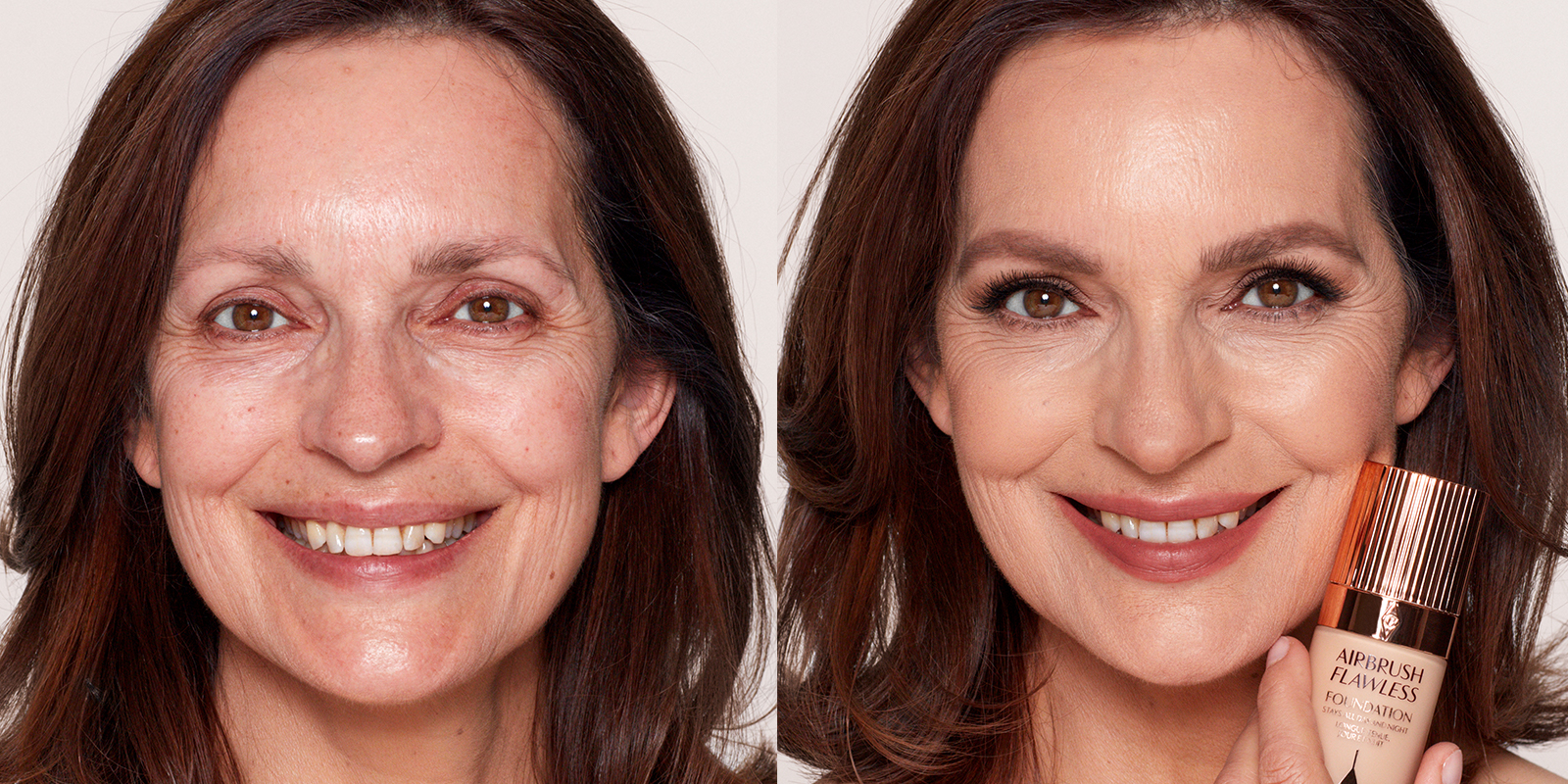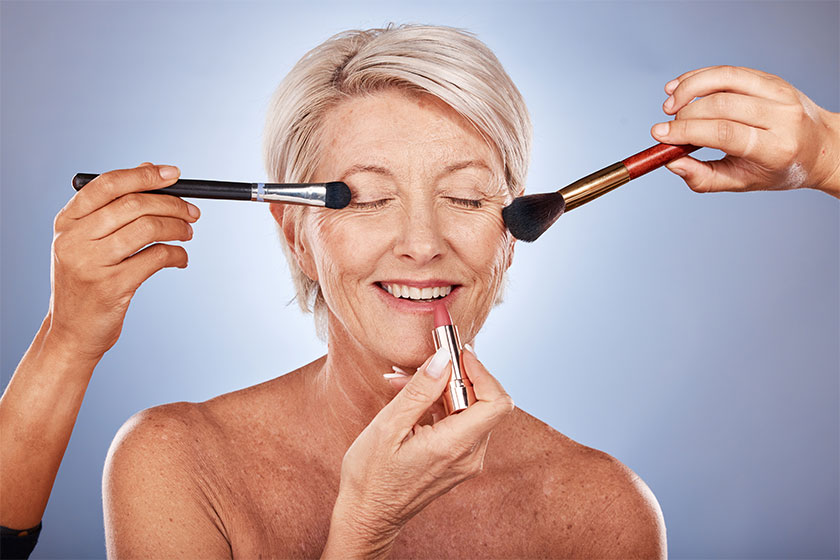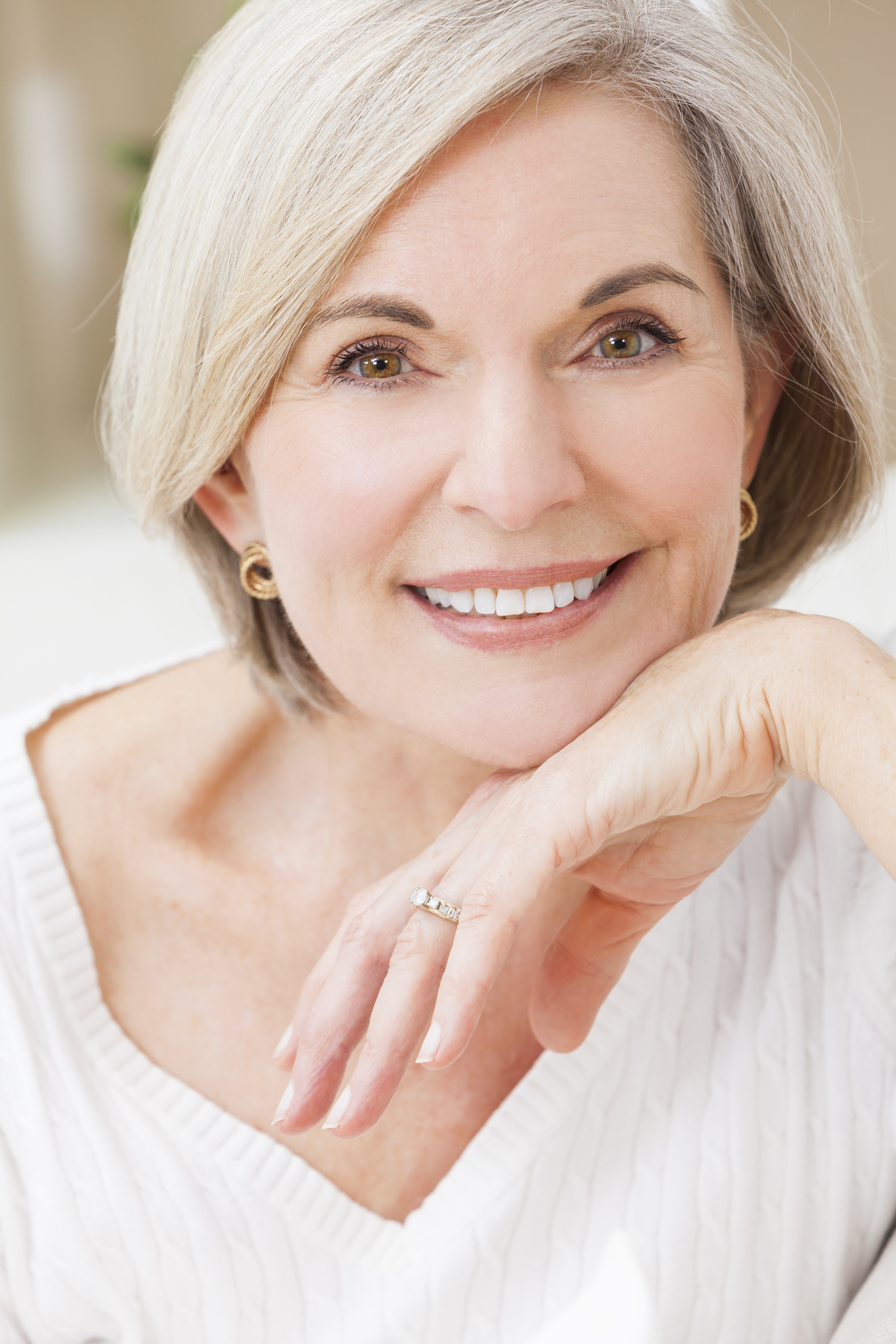Enhancing Natural Beauty: Makeup Tips for Seniors
Related Articles: Enhancing Natural Beauty: Makeup Tips for Seniors
Introduction
In this auspicious occasion, we are delighted to delve into the intriguing topic related to Enhancing Natural Beauty: Makeup Tips for Seniors. Let’s weave interesting information and offer fresh perspectives to the readers.
Table of Content
- 1 Related Articles: Enhancing Natural Beauty: Makeup Tips for Seniors
- 2 Introduction
- 3 Enhancing Natural Beauty: Makeup Tips for Seniors
- 3.1 Understanding Skin Changes with Age
- 3.2 Makeup Techniques to Enhance Natural Beauty
- 3.3 Importance of Makeup for Seniors
- 3.4 FAQs about Makeup for Seniors
- 3.5 Conclusion
- 4 Closure
Enhancing Natural Beauty: Makeup Tips for Seniors

As we age, our skin undergoes natural changes, impacting its texture, tone, and overall appearance. These alterations can influence how makeup sits on the skin and the desired effect it creates. However, makeup can be a powerful tool to enhance natural beauty and boost confidence at any age.
This article explores makeup tips specifically tailored for seniors, focusing on techniques that enhance features, address age-related changes, and promote a healthy, vibrant look.
Understanding Skin Changes with Age
Before diving into specific makeup techniques, it’s crucial to understand the common skin changes that occur with age:
- Thinning Skin: As we age, the skin’s collagen and elastin production decreases, leading to a thinner, more delicate skin surface. This can result in increased visibility of blood vessels and fine lines.
- Dryness: Reduced oil production can contribute to dryness, making the skin appear dull and flaky.
- Loss of Elasticity: Decreased collagen and elastin production leads to loss of elasticity, resulting in sagging and wrinkles.
- Pigmentation Changes: Sun exposure and hormonal changes can contribute to age spots, uneven skin tone, and hyperpigmentation.
Makeup Techniques to Enhance Natural Beauty
Knowing these changes allows for the selection of makeup products and techniques that address them effectively:
1. Foundation and Concealer:
- Choosing the Right Foundation: Opt for lightweight, hydrating foundations that provide buildable coverage. Avoid thick, heavy formulas that can settle into lines and emphasize wrinkles.
- Color Matching: Seek professional color matching to find a foundation shade that seamlessly blends with your skin tone. Consider using a lighter shade on the outer edges of the face to create a natural contour.
- Concealer Application: Use a creamy concealer to cover dark circles, age spots, and other imperfections. Blend it gently with a brush or sponge, ensuring a seamless transition.
2. Eye Makeup:
- Eyelids: Choose eyeshadows with a matte or satin finish. Shimmery shadows can highlight fine lines and wrinkles. Apply a light shade to the inner corner of the eye for a brightening effect.
- Eyeliner: Opt for a soft, pencil eyeliner to define the lash line. Avoid harsh lines and heavy application, as this can accentuate wrinkles.
- Mascara: Select a volumizing mascara that lengthens and separates lashes without clumping. Apply a single coat to avoid excessive heaviness.
3. Brows:
- Shape and Define: Well-defined brows can frame the face and lift the eyes. Use a brow pencil or powder to fill in sparse areas, following the natural shape of the brow.
- Color Selection: Choose a brow color that complements your hair color. Avoid shades that are too dark or light.
4. Lips:
- Hydration: Keep lips hydrated with a lip balm or moisturizer. Dry, chapped lips can make lipstick look uneven.
- Color Choice: Experiment with different lip colors and textures to find what suits you best. Matte lipsticks can be drying, so consider using a moisturizing formula.
- Lip Liner: Use a lip liner to define the lip shape and prevent lipstick from bleeding. Choose a liner shade that matches or is slightly darker than your lipstick.
5. Blush and Bronzer:
- Blush: Apply blush to the apples of the cheeks for a natural flush of color. Choose a shade that complements your skin tone.
- Bronzer: Use a bronzer to create a natural contour and warm up the complexion. Apply it lightly to the temples, cheekbones, and jawline.
6. Setting:
- Powder: Use a translucent setting powder to set makeup and prevent it from creasing or fading. Apply it lightly with a large brush.
- Setting Spray: A setting spray can help to lock in makeup and provide a long-lasting finish.
7. Skincare as a Foundation:
- Moisturizer: Use a daily moisturizer that is suitable for your skin type. Hydrated skin makes makeup application smoother and more even.
- Sun Protection: Apply sunscreen daily, even on cloudy days. Sun protection is crucial for preventing further damage and age spots.
- Exfoliation: Regular exfoliation helps to remove dead skin cells, revealing brighter, smoother skin.
8. Makeup Brushes and Tools:
- Soft and Gentle: Use soft, high-quality makeup brushes to apply and blend products smoothly. Avoid harsh bristles that can irritate the skin.
- Sponge Applicators: Sponges are excellent for blending foundation, concealer, and cream products.
- Clean Tools: Clean brushes and sponges regularly to prevent bacteria buildup and maintain hygiene.
9. Less is More:
- Natural Look: Focus on enhancing natural features rather than covering them up.
- Subtle Application: Apply makeup in thin layers, blending it seamlessly for a natural, radiant finish.
- Minimalism: Avoid heavy makeup that can look unnatural and emphasize wrinkles.
10. Confidence and Individuality:
- Experiment and Find What Works: Explore different makeup techniques and products to discover what enhances your features and makes you feel confident.
- Embrace Your Unique Beauty: Makeup is a tool to enhance, not to mask. Celebrate your individuality and natural beauty.
Importance of Makeup for Seniors
Beyond enhancing appearance, makeup for seniors offers numerous benefits:
- Confidence Boost: Makeup can significantly boost confidence and self-esteem, helping seniors feel more vibrant and empowered.
- Positive Self-Image: Applying makeup can be a form of self-care, promoting a positive self-image and a sense of well-being.
- Social Interaction: Makeup can facilitate social interaction by enhancing appearance and making seniors feel more comfortable engaging with others.
- Expression of Personal Style: Makeup allows seniors to express their individual style and personality, fostering creativity and individuality.
FAQs about Makeup for Seniors
1. Can I wear makeup if I have sensitive skin?
Yes, but choose hypoallergenic and fragrance-free products. Look for gentle formulas specifically designed for sensitive skin.
2. What type of foundation is best for mature skin?
Lightweight, hydrating foundations with buildable coverage are ideal. Avoid thick, heavy formulas that can settle into lines.
3. How can I minimize wrinkles with makeup?
Opt for matte or satin eyeshadows. Use a concealer to cover fine lines, and blend it gently for a seamless finish. Avoid heavy application of makeup, as this can emphasize wrinkles.
4. How do I choose the right blush color?
Consider your skin tone. Fair skin tones can wear soft pinks or peaches, while darker skin tones can opt for deeper rose or berry shades.
5. How can I make my eyes look bigger and brighter?
Apply a light eyeshadow to the inner corner of the eye. Use a soft, pencil eyeliner to define the lash line. Curl your lashes and apply a volumizing mascara.
6. How often should I replace my makeup?
Replace makeup products every 6 to 12 months, depending on the product and how often it is used.
7. Is it okay to use makeup for a special occasion if I don’t normally wear it?
Absolutely! Makeup can be a fun way to enhance your appearance for special occasions. Choose products and techniques that make you feel comfortable and confident.
8. Where can I find makeup tips specifically for seniors?
Many beauty blogs, magazines, and YouTube channels offer makeup tips for seniors. Seek out resources that feature makeup artists and models of various ages.
9. Can I get a makeup lesson tailored for my age?
Many department stores and beauty counters offer makeup lessons. Ask for a makeup artist who specializes in mature skin and can provide personalized tips.
10. How can I learn to apply makeup more effectively?
Practice makes perfect! Experiment with different techniques and products. Watch makeup tutorials online and seek advice from friends or family members who are skilled in makeup application.
Conclusion
Makeup for seniors is not about hiding age but about enhancing natural beauty and promoting a sense of confidence and well-being. By understanding the changes that occur with age and choosing products and techniques that address them effectively, seniors can embrace their unique beauty and enjoy the transformative power of makeup.
/older-women-eye-makeup-56a085f23df78cafdaa26cd6.jpg)







Closure
Thus, we hope this article has provided valuable insights into Enhancing Natural Beauty: Makeup Tips for Seniors. We thank you for taking the time to read this article. See you in our next article!